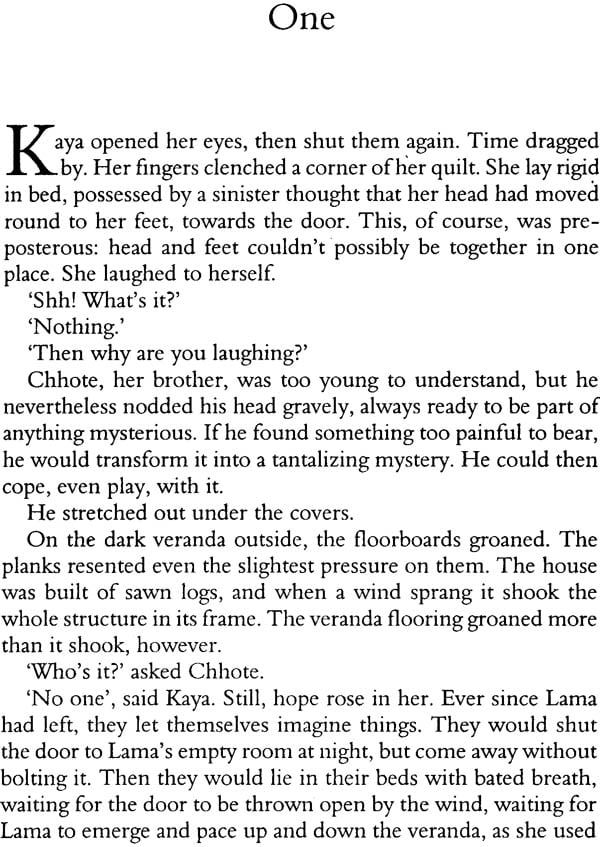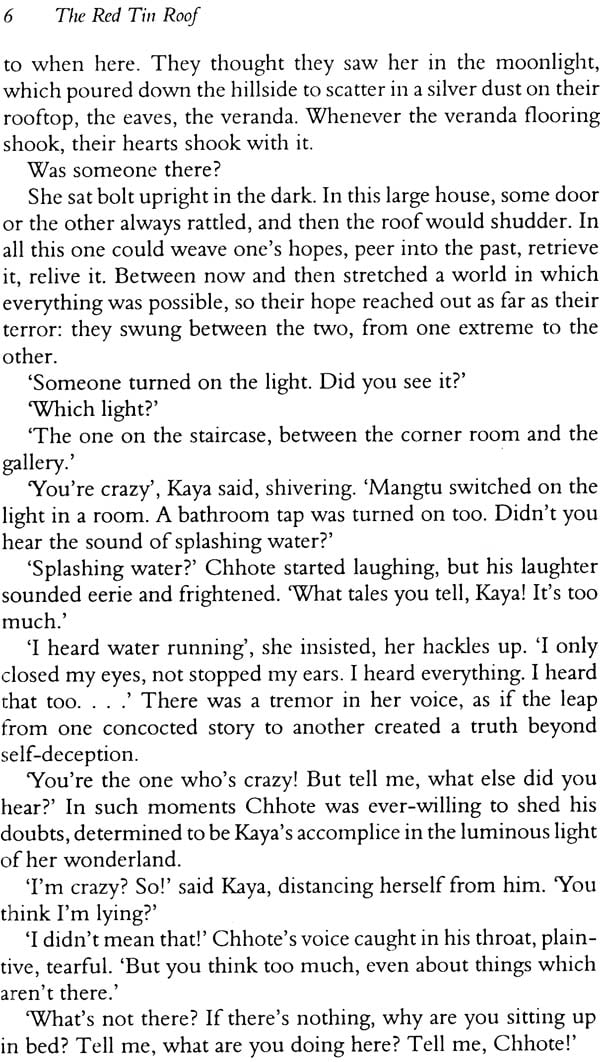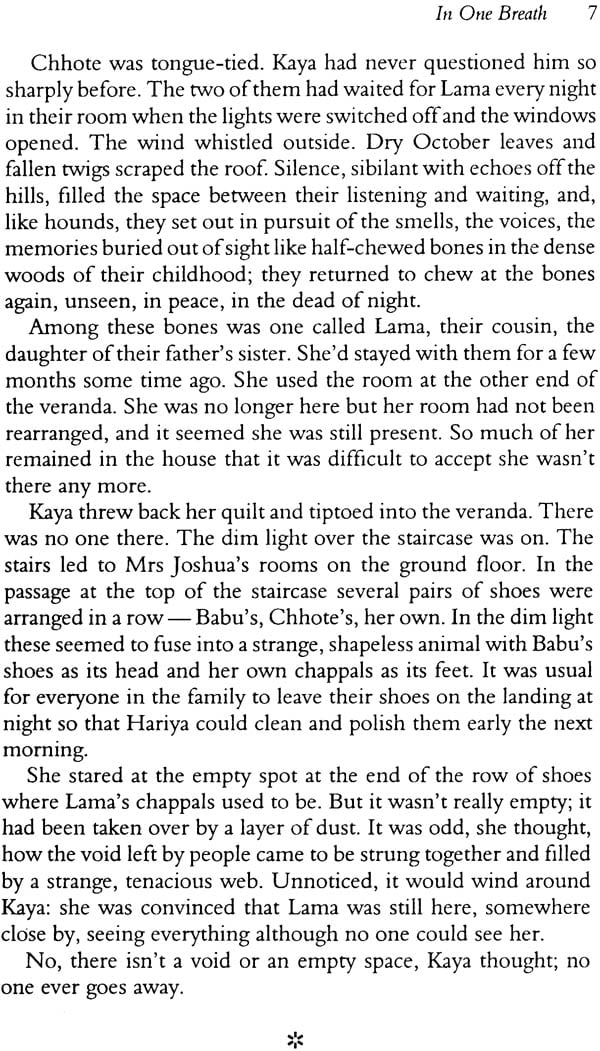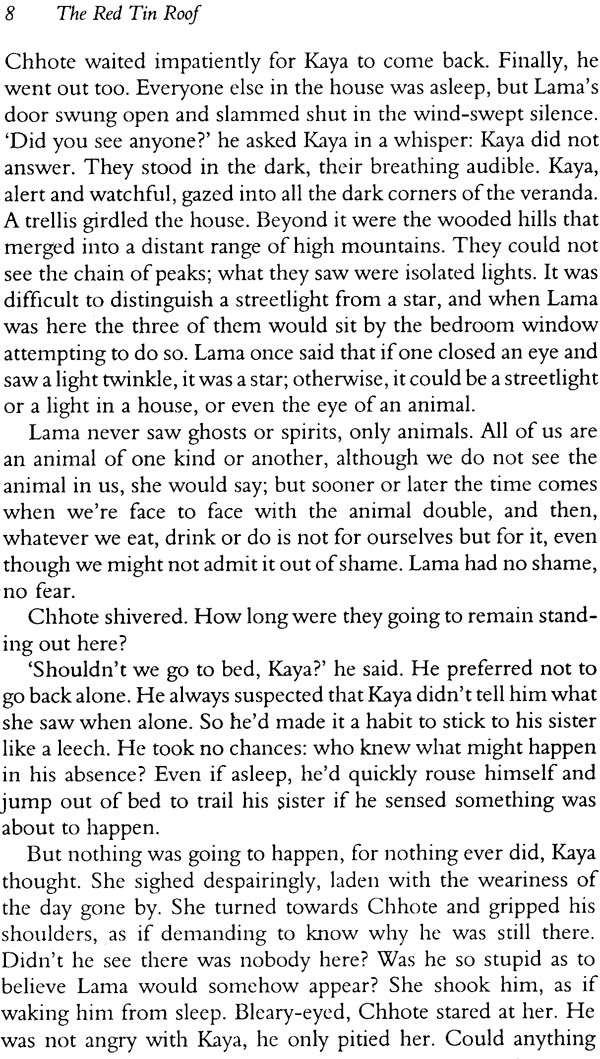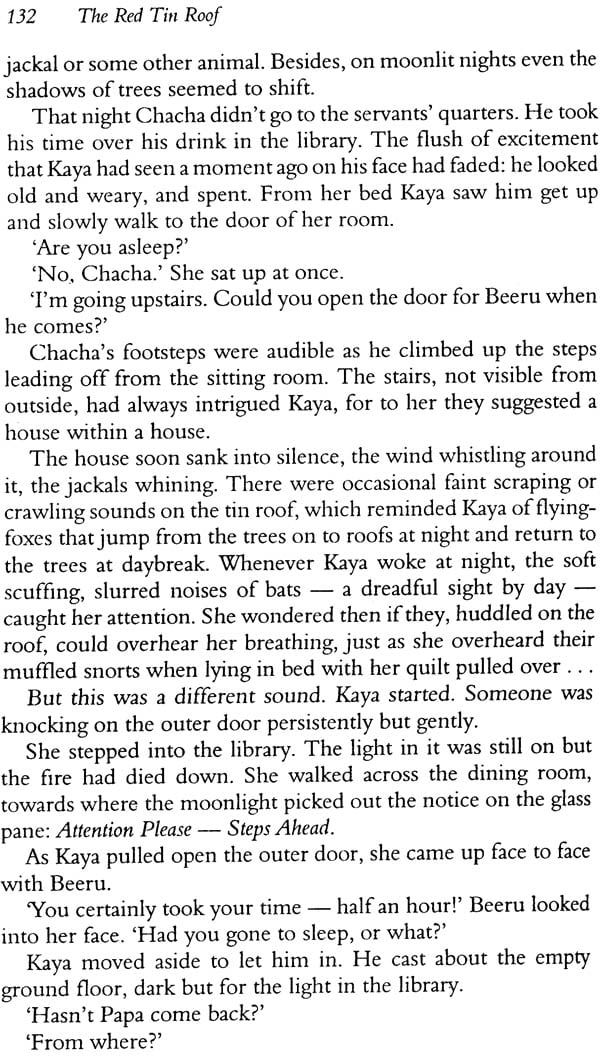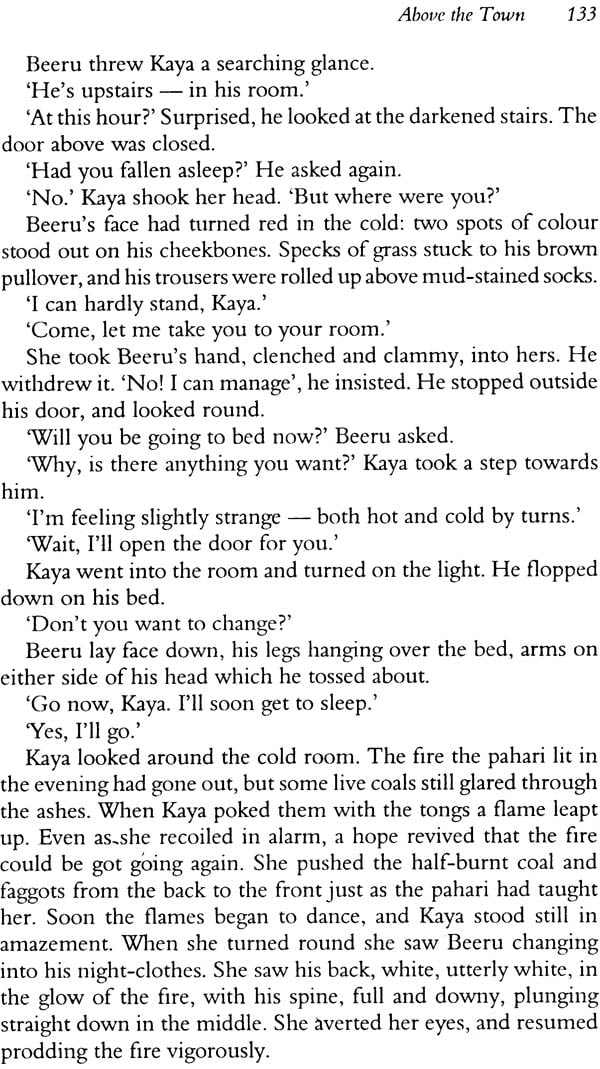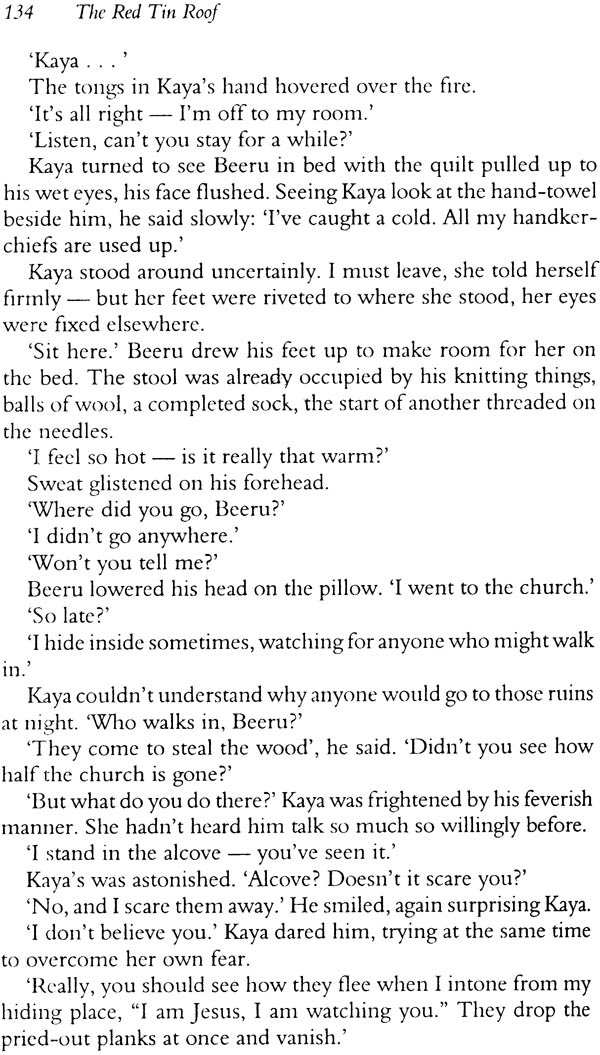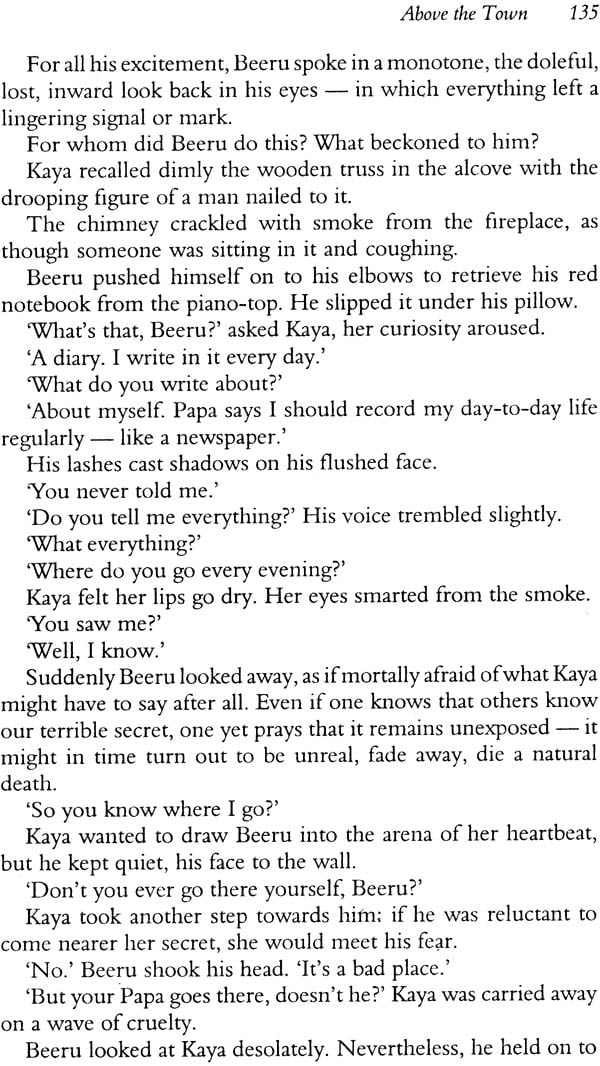
The Red Tin Roof
Book Specification
| Item Code: | NAG482 |
| Author: | Nirmal Verma |
| Publisher: | Ravi Dayal Publisher |
| Language: | English |
| Edition: | 1997 |
| ISBN: | 8175300124 |
| Pages: | 168 |
| Cover: | Hardcover |
| Other Details | 8.5 inch X 5.5 inch |
| Weight | 350 gm |
Book Description
About the Book
Nirmal Verma is widely acknowledged to be the finest writer of contemporary Hindi fiction. The corpus of his work includes four novels, six collections of short stories, and several volumes of critical essays, travelogues and reminiscences. Only a fraction of Nirmal Verma's work has thus far been translated, but the novels and short stories that have appeared in English renderings in India and Britain have won considerable international acclaim.
The Red Tin Roof is a translation of Nirmal Verma's second novel, Lal Teen ki Chhat, first published in 1974. Set in Shimla, it evokes with rare delicacy and precision the interplay of the seasons, nature and people, and, on the narrative plane, broodingly tells of a young girl growing into adolescence in the company mostly of older women, but also of a younger brother who trails her. However, as Sham Lal, the perceptive critic, comments 'Nirmal Verma does not so much tell a story as reminisce. Memory is the seed of his story.' He explores an inner world.
About the Author
Nirmal Verma was born in 1929 in Shimla and spent much of his childhood there. He was a student at St Stephen's College, Delhi, where he read History for his MA. He joined the Communist Party when in University, but resigned from it some years later. From 1959 to 1968 Nirmal Verma was in Czechoslovakia; when there, he not only translated several Czech works into Hindi but also wrote his first novel, a collection of short stories and a travelogue. On returning to India, he was a Fellow of the Institute of Advanced Study, Shimla, for a while. Nirmal Verma received the coveted Sahitya Akademi award in 1986.
Prologue
Everything was ready: the hold-all, bundles, and a suitcase. A coolie stood on the street holding the reins of a pony. The coolie looked indifferently at the house. Four people stood in the sun-splashed passage: a man, a dwarf-like woman short and squat, another woman, and, a little away, a bald-headed boy whose face was split from ear to ear by an empty grin.
The house had a red tin roof and in the afternoon sun it shone like a sheet of glass.
It was March.
The coolie considered the pile of luggage at his feet, wondering if there was more to follow. Silence spun out, and only the pony fidgeted. The four people in the passage stood still against the railing, so still that it seemed they might be posing in the sun for a photograph.
All the doors on the ground floor of the house were closed.
A small gate opened on to a garden in front of the house. A tin letter-box hung on one nail from the gate, like a dead bird suspended upside down; it creaked rustily, rocked by the wind. The sound startled the pony, but it soon regained calm, and looked around amiably, albeit with weary, watery eyes.
A movement on the upstairs veranda of the house caught the coolie's eye. A girl emerged from a room, followed by a pigtailed middle-aged man carrying a small canvas bag. His dress and manner suggested he was a servant of the house. As he lumbered along behind the girl, dragging his foot, the wooden floor shook under his tread.
They were coming down the steps, but the girl halted abruptly on the bottom step, as if she had overlooked something. She turned back, scurried to the upstairs veranda and disappeared from view. The coolie stared. The pony swished its tail. The servant lowered the canvas bag on to the ground, and waited, his muddy, blinking eyes focused on the bare, snow-clad, sunlit peaks.
The girl had gone back to her room where a little boy stood, his large eyes flickering, his head tousled, intently gazing at her.
She wanted to tell the boy that she was leaving, but speech eluded her. The boy turned his back to her. She drew closer to him. It was time to leave, yet she stood there listening to his breathing heave across the shared months of winter. She was flooded by memories of days made chilly by the winds off snowy peaks. She closed her eyes, and, despite the afternoon sun, a darkness gathered behind them.
'Kaya! Orre Kaya!' she heard someone call her. They were waiting for her the coolie, the pony, the four people in the passage below, while the mountains around the house gleamed.
